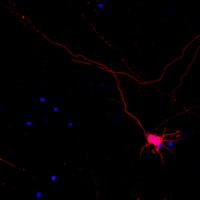AB15467P Sigma-AldrichAnti-ARG3.1 Antibody
Anti-ARG3.1 Antibody detects level of ARG3.1 & has been published & validated for use in IH.
More>> Anti-ARG3.1 Antibody detects level of ARG3.1 & has been published & validated for use in IH. Less<<Recommended Products
Overview
| Replacement Information |
|---|
Key Spec Table
| Species Reactivity | Key Applications | Host | Format | Antibody Type |
|---|---|---|---|---|
| R | IHC | Rb | Purified | Polyclonal Antibody |
| References |
|---|
| Product Information | |
|---|---|
| Format | Purified |
| Presentation | Lyophilized. Reconstitute with 50 μL of sterile distilled water. Centrifuge to remove any insoluble material. Contains no preservative. |
| Quality Level | MQ100 |
| Physicochemical Information |
|---|
| Dimensions |
|---|
| Materials Information |
|---|
| Toxicological Information |
|---|
| Safety Information according to GHS |
|---|
| Safety Information |
|---|
| Packaging Information | |
|---|---|
| Material Size | 500 µg |
| Transport Information |
|---|
| Supplemental Information |
|---|
| Specifications |
|---|
| Global Trade Item Number | |
|---|---|
| Catalogue Number | GTIN |
| AB15467P | 04053252744099 |
Documentation
Anti-ARG3.1 Antibody Certificates of Analysis
References
| Reference overview | Pub Med ID |
|---|---|
| Arc/Arg3.1 mediates homeostatic synaptic scaling of AMPA receptors Shepherd, Jason D, et al Neuron, 52:475-84 (2006) 2006 | 17088213
 |
Data Sheet
| Title |
|---|
| RABBIT ANTI-ARG3.1 (IgG FRACTION) POLYCLONAL ANTIBODY |









